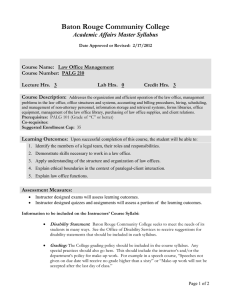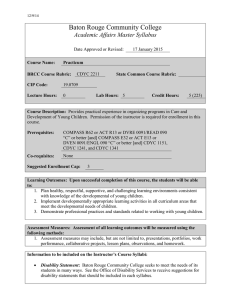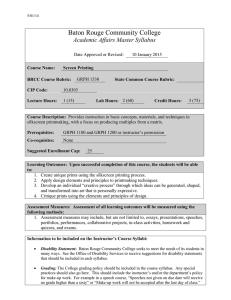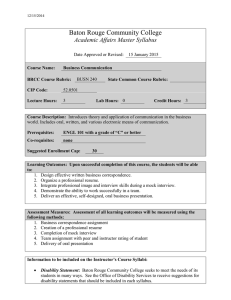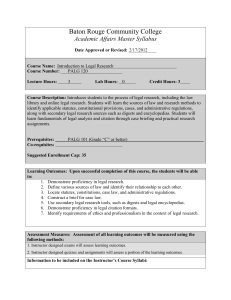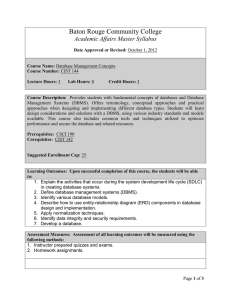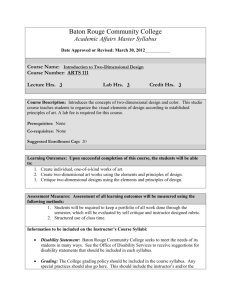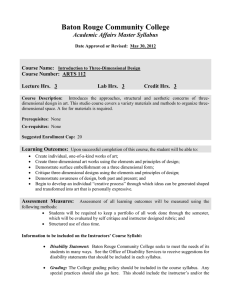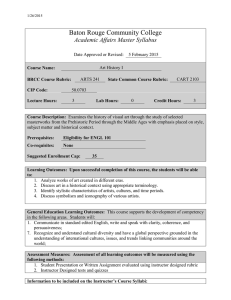ARTS 101 - Baton Rouge Community College
advertisement
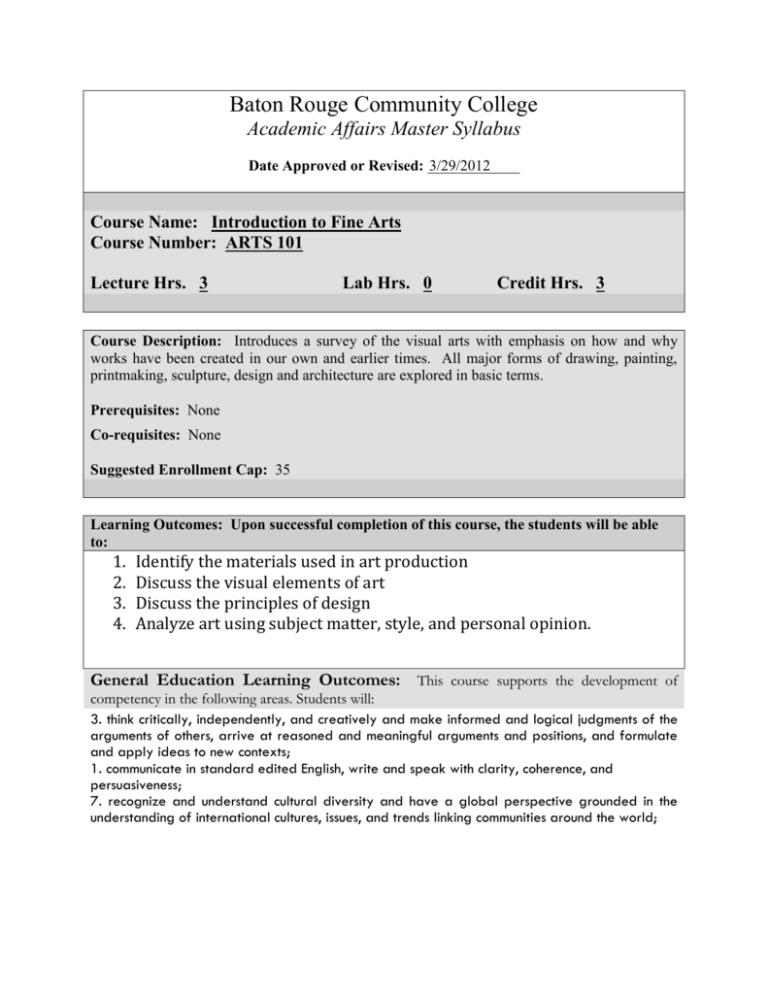
Baton Rouge Community College Academic Affairs Master Syllabus Date Approved or Revised: 3/29/2012 Course Name: Introduction to Fine Arts Course Number: ARTS 101 Lecture Hrs. 3 Lab Hrs. 0 Credit Hrs. 3 Course Description: Introduces a survey of the visual arts with emphasis on how and why works have been created in our own and earlier times. All major forms of drawing, painting, printmaking, sculpture, design and architecture are explored in basic terms. Prerequisites: None Co-requisites: None Suggested Enrollment Cap: 35 Learning Outcomes: Upon successful completion of this course, the students will be able to: 1. 2. 3. 4. Identify the materials used in art production Discuss the visual elements of art Discuss the principles of design Analyze art using subject matter, style, and personal opinion. General Education Learning Outcomes: This course supports the development of competency in the following areas. Students will: 3. think critically, independently, and creatively and make informed and logical judgments of the arguments of others, arrive at reasoned and meaningful arguments and positions, and formulate and apply ideas to new contexts; 1. communicate in standard edited English, write and speak with clarity, coherence, and persuasiveness; 7. recognize and understand cultural diversity and have a global perspective grounded in the understanding of international cultures, issues, and trends linking communities around the world; Assessment Measures: Assessment of all learning outcomes will be measured using the following methods: 1. Student Presentation evaluated using instructor designed rubric. 2. Instructor Designed tests and quizzes. Information to be included on the Instructor’s Course Syllabi: Disability Statement: Baton Rouge Community College seeks to meet the needs of its students in many ways. See the Office of Disability Services to receive suggestions for disability statements that should be included in each syllabus. Grading: The College grading policy should be included in the course syllabus. Any special practices should also go here. This should include the instructor’s and/or the department’s policy for make-up work. For example in a speech course, “Speeches not given on due date will receive no grade higher than a sixty” or “Make-up work will not be accepted after the last day of class.” Attendance Policy: Include the overall attendance policy of the college. Instructors may want to add additional information in individual syllabi to meet the needs of their courses. General Policies: Instructors’ policy on the use of things such as beepers and cell phones and/or hand held programmable calculators should be covered in this section. Cheating and Plagiarism: This must be included in all syllabi and should include the penalties for incidents in a given class. Students should have a clear idea of what constitutes cheating in a given course. Safety Concerns: In some programs this may be a major issue. For example, “No student will be allowed in the safety lab without safety glasses.” General statements such as, “Items that may be harmful to one’s self or others should not be brought to class.” Library/ Learning Resources: Since the development of the total person is part of our mission, assignments in the library and/or the Learning Resources Center should be included to assist students in enhancing skills and in using resources. Students should be encouraged to use the library for reading enjoyment as part of lifelong learning. Expanded Course Outline: I. Introduction – What is Art? II. The Language of Art A. Visual elements of art B. Principles of Design C. Style, Form and Content III. Two-Dimensional Media A. Drawing B. Painting C. Printmaking D. Camera and Computer Arts IV. Three-Dimensional Media A. Sculpture B. Architecture C. Craft and Design V. Art Through the Ages A .The Art of the Ancients B. Classical Art: Greece and Rome C. Christian Art: From Catacombs to Cathedrals D. The Renaissance E. The Age of Baroque F. Art Beyond the West G. Modern Art H. The Twentieth century: the Early Years I. Contemporary Art Expanded Course Outline:

